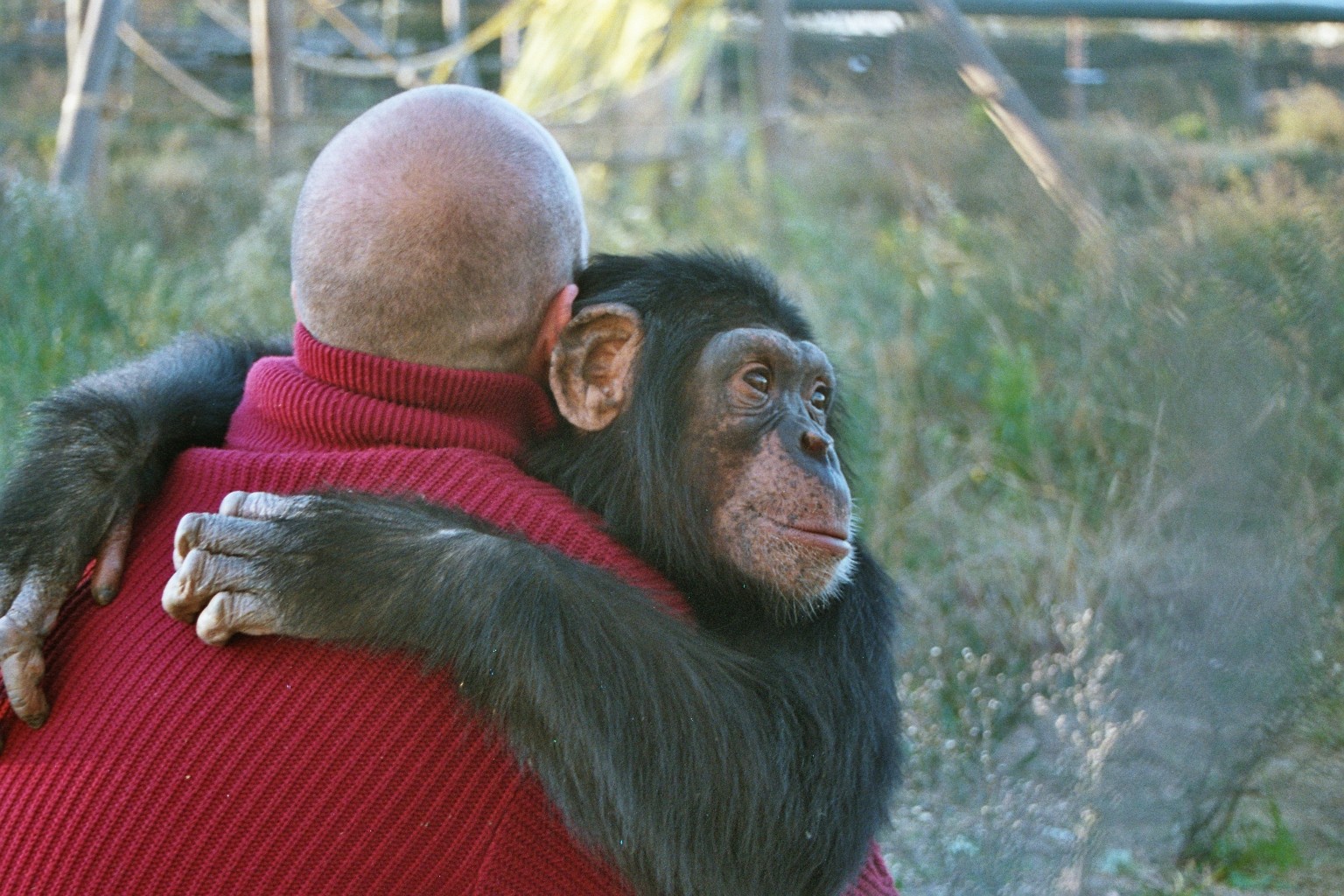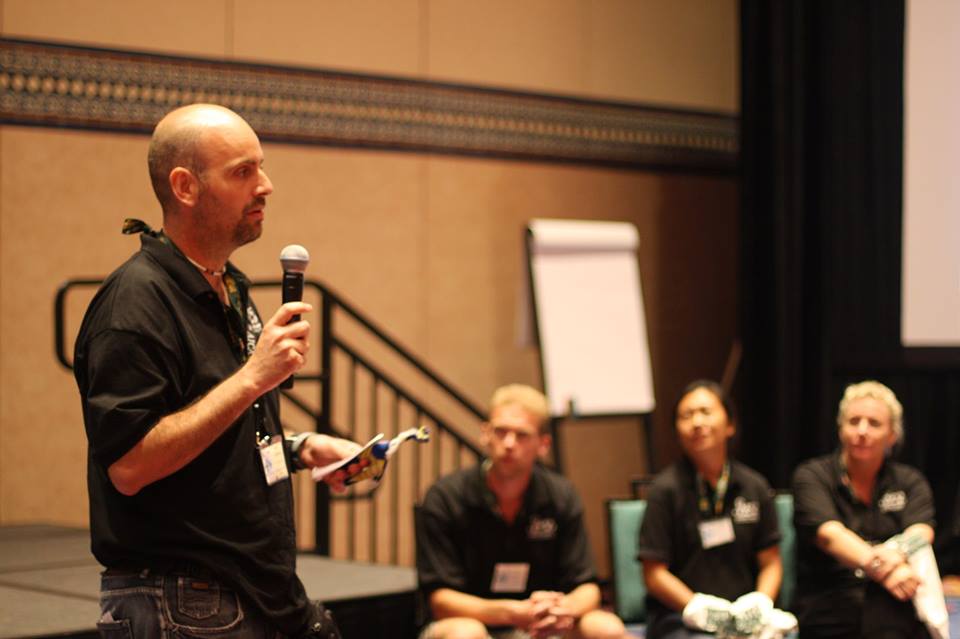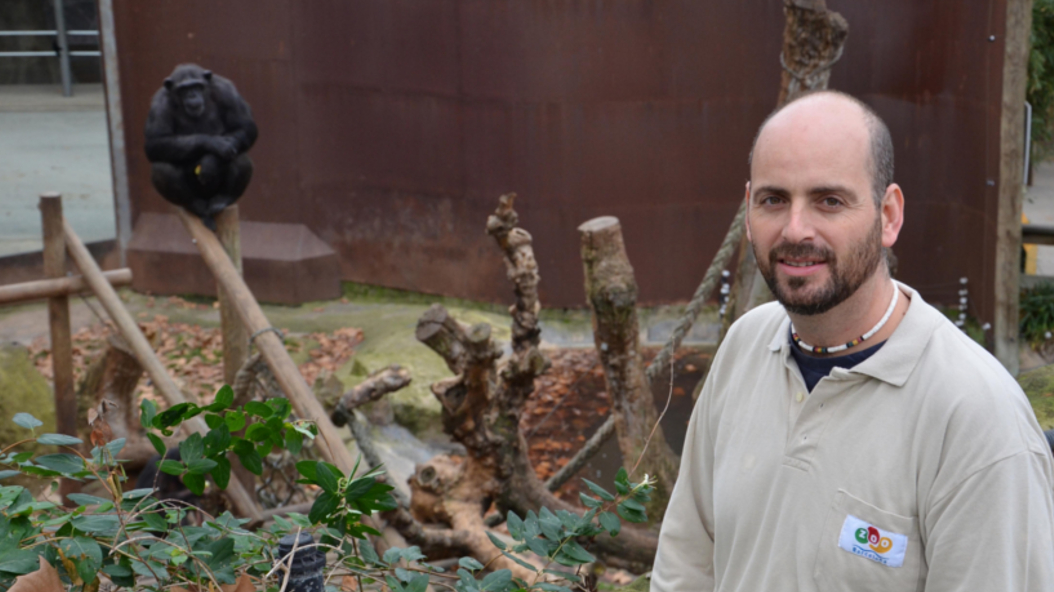For keepers at Barcelona Zoo like Raúl Cabrera, the day starts early. By 7.15am, they are already preparing breakfast for the primates and checking that they’ve had a good night. They take advantage of the fact that the animals are still inside to clean up outside. “We have to make it like our own home on the days when we have visitors. Once ready, he gives the primates the option to go outside or not. “In the old days, back in the 1960s and 70s, they were almost forced to go outside, but now they make their own choice. If they don’t fancy it, they don't go out.” Once the animals are outside, the keepers clean up indoors. “There, they have heating, lighting, things to make their den...” During the day, the zookeepers provide food for the primates as though they were in their natural habitat and make sure that visitors are respectful towards them. They are also responsible for making their lives richer - such as, by offering materials and activities that break their routines and administering any medication that has been prescribed by the veterinarians. “The animals trust us, their keepers. We can help make them better without the need for anaesthesia.” In the afternoon - at times that vary according to whether it’s winter or summer - they get the animals back indoors, where supper is waiting for them. “In the wild, they follow virtually the same timetable as at the Zoo".
On paper, this is where Raúl and his colleagues’ day ends. But is that really the case? “A zookeeper’s role", explains Raul, "is 24 hours a day. If we have a sick animal, we don’t clock off as though it doesn’t matter. In such situations, we often take it turns to care for them during the night.”
Beyond the Zoo
The job of a zookeeper requires dedication. At least, it is for Raúl Cabrera. He speaks passionately about his work and, above all, the animals he cares for. His involvement with them goes beyond his tasks at Barcelona Zoo or the positions he’s held at other zoos like Madrid or Tenerife or at projects like La Mona Foundation. Cabrera has built his life, his day to day activity, with the aim of ensuring the welfare and preservation of primates. With this goal, together with Laia Dotras, he founded the SOS Primates organisation. “The work we do here is voluntary. We’re currently, working with the CRPL project” - the Lwiro Primate Rehabilitation Centre in Democratic Republic of the Congo, where 76 chimpanzees and 96 monkeys have been rescued from poaching and illegal trafficking activities. They work to protect these animals, "but also to ensure decent conditions for the centre’s workers and the local population”. They lack infrastructure and so, taking advantage of a change in uniform design, he asked Barcelona Zoo if they could donate any uniforms that were due for replacement. “Now everybody at CRPL has two changes of uniform."
Unforgettable moments
There’s no reason to doubt Raúl Cabrera’s almost exclusive dedication to primates. “Some time ago I decided I’d spend my holidays training, learning and understanding. You can never say you know it all". This quest has led him to spend time at the prestigious Jersey Zoo, the Apenheul in Holland and Monkey World in the south of England, among others. His first experience on site was in Indonesia with the Biruté Galdikas project. There, he was invited to release some orangutans. “It was one of the most emotional moments of my life. Unforgettable.” Not the only one, however. Working with bonobos in the Congo also left a big impression on him, as well as giving him the chance to study and share experiences with the Delacour’s langur, of which only 200 individuals remain in the EPRC sanctuary in Vietnam. “I felt so lucky. It was like a Bruce Springsteen fan being invited to attend an unplugged concert for just a few people in a small theatre!”

A kept letter
The Boss analogy offers another similarity in Raúl Cabrera’s life and a letter that he keeps - just as a Springsteen fan would keep the harmonica that Bruce played on The River. Cabrera was not yet a teenager when he bought a copy of Ecología y Vida at the newsagents. The first issue included the book Gorillas in the Mist about Diane Fossey's experiences. “I read it and was blown away". In fact, he was so impressed that he wrote a letter explaining how he felt to the famous primatologist’s Digit Foundation in the United States. “I sent the equivalent of about twenty euros which my brother who worked at the airport converted into dollars for me”. A classmate’s mother helped him translate the letter into English. He says: “I still keep the reply I received. I didn’t expect to get one and if I read it now, it still makes me feel emotional.”
Without doubt, to do a job like Raul's you need to have a special kind of sensitivity. He says it comes from his mother: "She was very generous and was always willing to help others. And she never told me I couldn’t bring an animal home.”
The good zookeeper's manual
Raúl Cabrera is an international representative of the Iberian Association of Wild Animal Zookeepers (the “AICAS") to the International Federation of Zookeepers (ICZ). They share knowledge and experiences, run forums and organise meetings, “We’re currently preparing a manual using images because many zookeepers in India can’t read”.
According to Cabrera, a zookeeper must be an observer, have patience and empathy. They must be in good physical shape, mentally prepared and be very aware of safety: “An animal will take advantage of a door you’ve left open”. In the end, however, he ends up summarising it in two main principles: “A zookeeper must try and live as close as possible to nature. And he or she must be willing to help.”
The biologist also talks about "getting the message out there" and the importance of devoting time to explaining and teaching about the zoo: “Whenever I can, I try to give talks and show more about how the animals live.”

A family
Raúl Cabrera talks about the Zoo’s residents as if they were his family. Although he wasn’t the keeper who spent the most time with albino gorilla Floquet de Neu (or "Copi" as the keepers called him), he says he was an exceptional animal. “He knew he was special, but with us he was very kind. He was harsh with his ‘women’ and daughters but was loving and playful like any grandfather would be with his grandchildren.
He also talks about chimpanzee Tibé and Jinga who had to be taken care of after an operation to put pins in her broken arm when she was a baby. She’ll soon be going to live in another zoo because she has grown bigger.
”You always love the animals. And you always remember the ones you’ve got to know and worked with. And no matter how long it’s been, they always remember you.”



